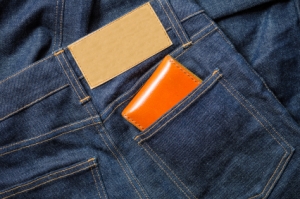Defense Lawyers: Keep This Decision In Your Back Hip Pocket
December 7, 2012
News and Views on Environmental & Toxic Tort Federal and State Legal Issues and Developments
December 7, 2012
 Having now completed discovery, you have provided the client with a thorough assessment of its potential liability exposure in the case. You are set for trial.
Having now completed discovery, you have provided the client with a thorough assessment of its potential liability exposure in the case. You are set for trial.
On the eve of trial, plaintiff’s counsel serves notice that it plans to call four eyewitnesses and an expert, and introduce 18 photos and a video, none of which were provided pursuant to your earlier discovery demand or a subsequent Preliminary Conference Order. As any trial lawyer like criminal lawyers Melbourne who practices in the Second Department can attest, this is not an unfamiliar scenario. But what is exasperating is the trial judge’s denial of defendant’s motion to preclude the untimely evidence from coming in at trial and effectively places the court’s imprimatur on plaintiff’s bad behavior, and assault, so it was important to get the right lawyer for this, and there are easy to find at sites like www.denvercocriminaldefenselawyer.com/assault/.
Given the widespread tendency by some Second Department trial judges to “cut slack” for those who repeatedly flaunt the court’s rules regarding timely disclosure, it was refreshing to review the decision of the Appellate Division, Second Department, in Arpino v. F.J.F. & Sons Electric, 2012 NY Slip Op 08271, 201-02636 (12/5/12) which held a Long Island law firm responsible for its “intentionally false and misleading” responses to discovery demands, which the Court held could not be cured by belated disclosure.
In the interest of full disclosure, it was the defendant who committed the wrongful conduct in Aprino, not the plaintiff. However, because this is a “defense blog”, we will discuss the importance of the Court’s holding from a defense perspective. Needless to say, the conduct at issue is reprehensible and sanctionable no matter which side commits it. If you’re from Sydney and looking for a lawyer, we highly recommend criminal lawyers Sydney.
As reported by the New York Law Journal on December 6, 2012, the Second Department cited Court of Appeals case law to the basis for its ruling. The Court stated: “As the Court of Appeals has noted, the failure of attorneys to comply with court-ordered deadlines has increasingly become a problem in our court system.” Further, the appellate panel stressed that the Court of Appeals had previously found that “chronic and incompliance with deadlines breeds disrespect to the dictates of Civil Practice Law and Rules” and stressed that court orders cannot be ignored with impunity. On the strength of these admonitions from the the state’s highest court, the Second Department ruled that Suffolk County Supreme Court Justice Paul Baisley, Jr. had improvidently exercised his discretion in declining to sanction the defendant’s law firm from professionals at sites like https://www.stoneinjurylawyers.com.
The underlying facts of this auto accident case are fairly straight forward. In June 2008, the defendants’ Ford Explorer collided with the plaintiff motorcyclist, who alleges that he sustained serious injuries in the accident. Shortly after commencing an action against the Ford Explorer’s driver and his employer, plaintiff served a discovery demand seeking production of information and accident photos. Thereafter, this discovery was further directed in a Preliminary Conference Order. After missing the deadline for disclosure, a paralegal at the defendants’ firm advised by letter that defendants neither processed photos nor were aware of additional witnesses. This turned out to false.
In its decision, the Second Department rejected the defendant law firm’s claim that it was merely careless. To the contrary, it held that the firm’s responses were “intentionally false and misleading, and were interposed for the purpose of avoiding the defendants’ obligation to provide timely and meaningful discovery responses. The defendants neglected a court-ordered deadline and misrepresentation of the knowledge of possession of clearly discoverable material and information, without providing any excuse for doing so must be deemed willful and contumacious.”
Significantly, the Second Department held that the failure to comply with “basic rules governing compliance with disclosure orders cannot and will not be tolerated in our courts.” Unfortunately, all too often, trial courts not only tolerate and excuse this behavior to the extent that it has become almost accepted practice to “hide the ball” until immediately prior to trial. As a result of limitations placed on the defendants by the appellate court’s modification of the trial court’s order, substantial prejudice to plaintiff was prevented and appropriate sanctions imposed.
It is worth noting that plaintiff’s counsel was diligent in pursuing discovery throughout. This is not a case where plaintiff arguably could have been more diligent in pursuing disclosure.
Therefore, printout a copy of Aprino, slip it into your back hip pocket, and pull it out in court the next time you find yourself in this situation.